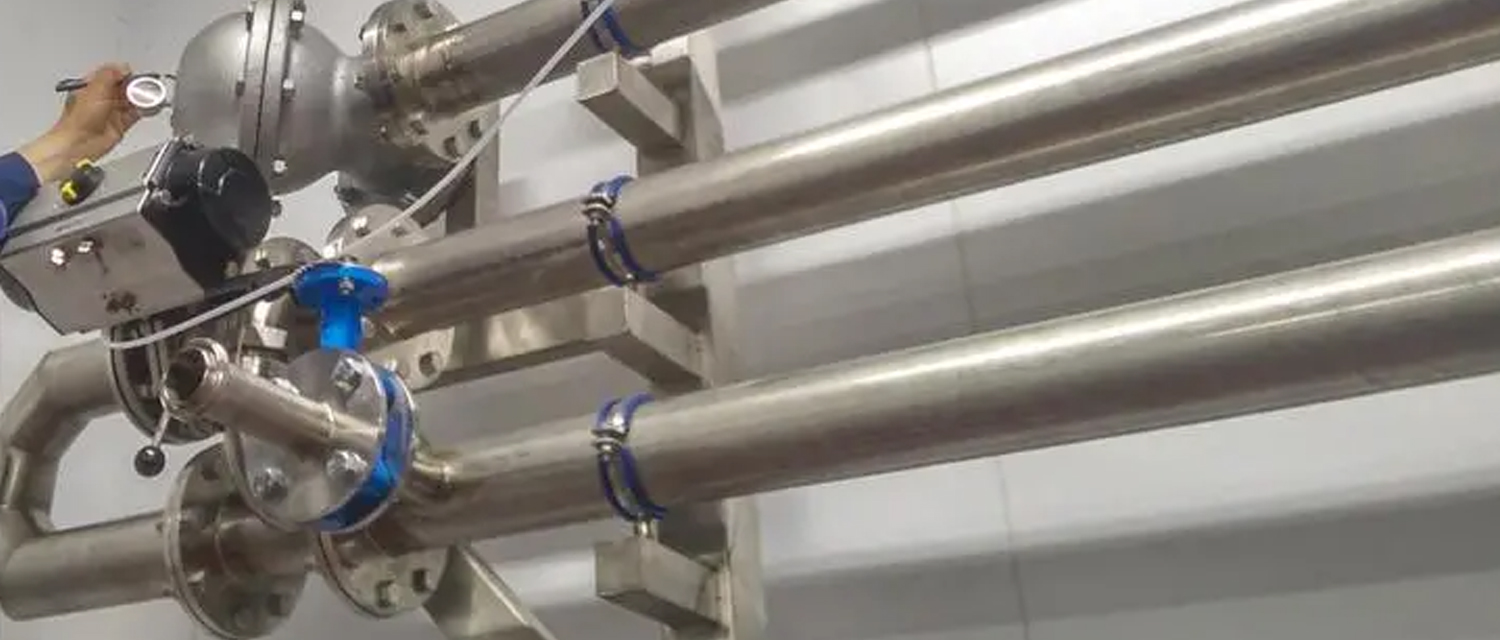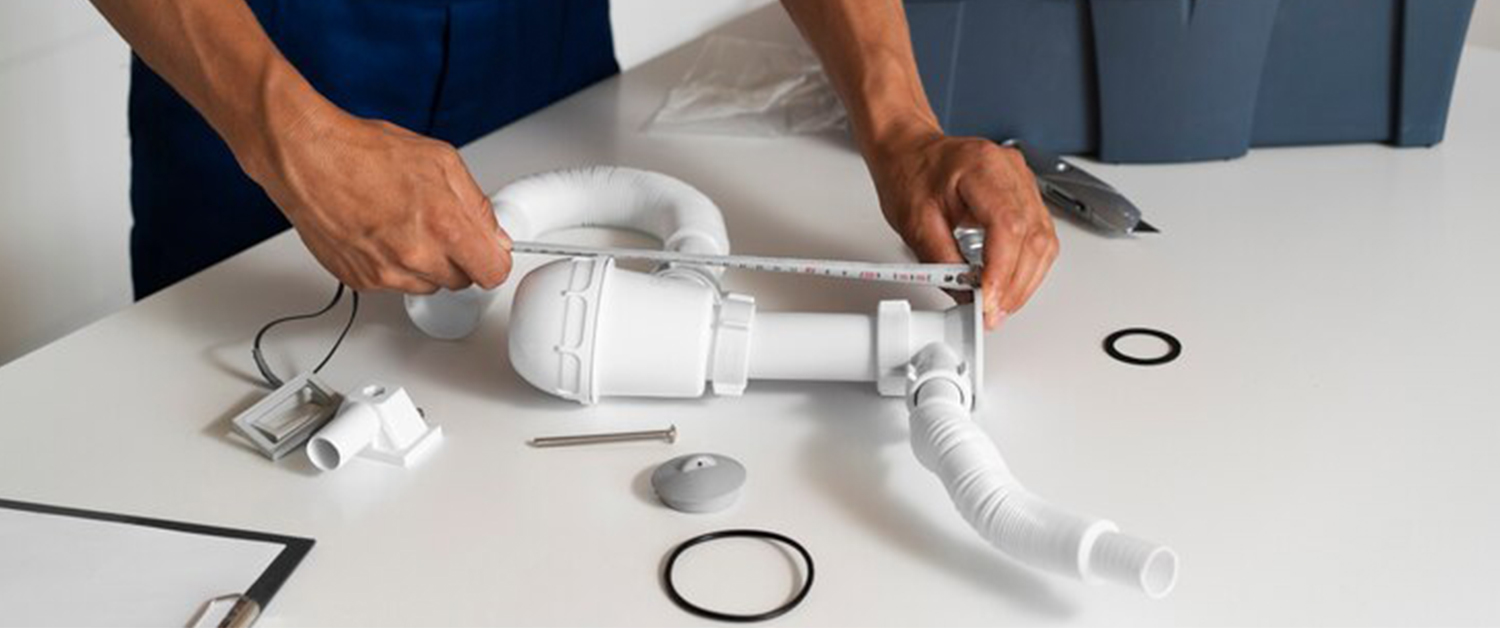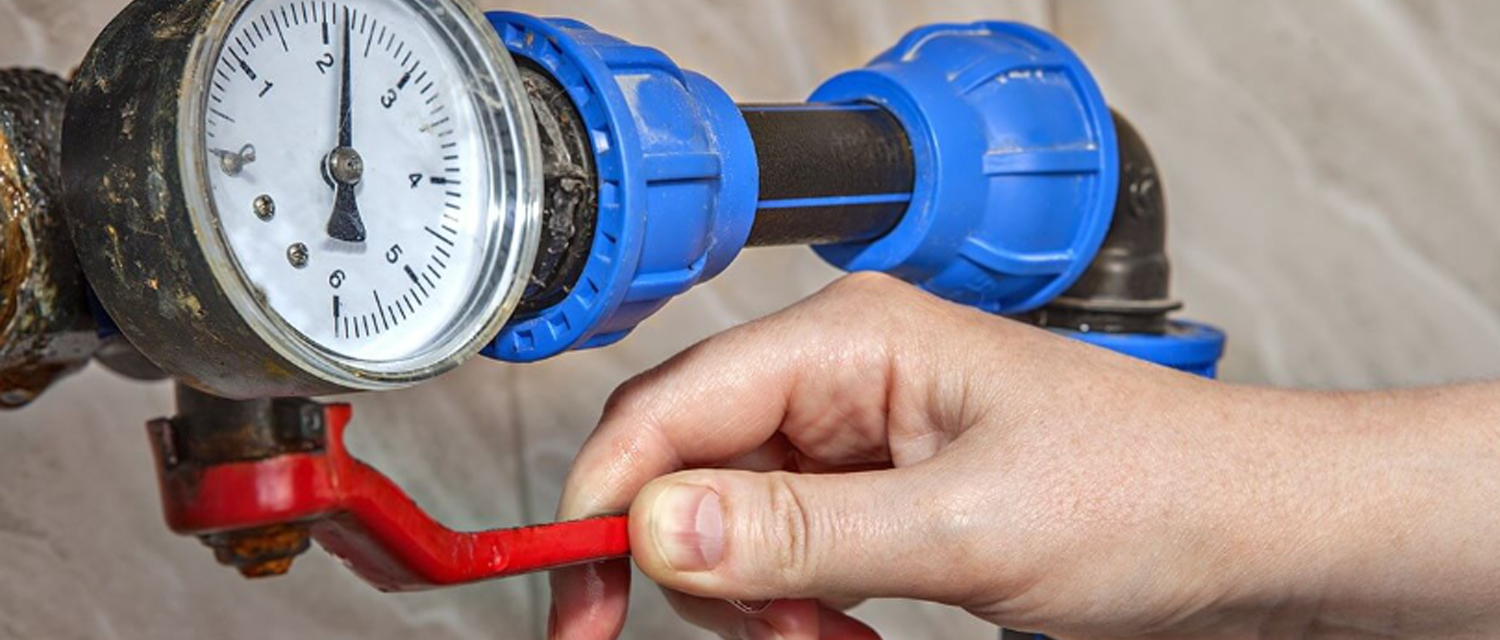Noisy water pipes can disturb the peace and quietness of the place. They can create concerns regarding the condition of your plumbing system by transforming your house into an unexpected sound of clattering and banging. Therefore, it becomes important to realize that loud pipes are more than just a source of inconvenience or much more. Let us understand the noisy pipes 5 causes and solutions.
5 Causes Of Noisy Pipes
- Water Hammer
Water hammer/ hydraulic shock happens when the water flow is stopped abruptly. Hence it creates a shockwave through the pipes. Water pipes producing loud, noticeable thud or slamming sounds can be observed. Whereas these water hammers may appear harmless, they may ruin appliances, joints and pipes over time, resulting in leaks and reduced effectiveness.
- Loose Pipes
This is the common cause of noisy water pipes. The rattling and vibrating noises coming from your plumbing system are due to loose pipes. These disturbing sounds are frequently the consequence of poor installation techniques or a building's gradual natural descending. Furthermore, it is crucial to locate and fix loose pipes to minimize noise. Moreover, fixing can also help to stop further harm to the pipes and other surrounding areas.
- High Water Pressure
Sufficient pressure ensures a consistent water flow. High water pressure can severely harm pipes, joints, and appliances. Hence, it leads to noisy water pipes. High pressure of the water can lead to leakage, water hammer, and hence, harm to your plumbing system.
- Sediment Buildup
Minerals, silt, and other debris can build up in your pipes over time, which obstructs water flow and produces loud disturbances. This sediment accumulation may be a sign of impending obstructions and plumbing system deterioration. Flushing has benefits beyond just making your plumbing system quieter.
- Air In The Pipes
Noisy water pipes with gurgling or bubbling sounds signify the presence of air in your plumbing system and indicate an imbalance in the water flow. Maintaining a quiet and effective plumbing system requires finding and fixing air in the pipes.
Solutions To The Above 5 Noisy Pipes Causes
Water Hammer Arrestors
Water hammer arrestors are the hidden accessories of noisy water pipes. It is essential to comprehend their function and the installation procedure for efficient reduction of noise. Water hammer arrestors are made to cushion the shockwaves produced when water flow is stopped abruptly. They are made out of a sealed air chamber that constricts in response to a sudden stoppage of water flow. Therefore, it helps to stop the shockwave from passing through the pipes.
Benefits Of Using Water Hammer Arrestors
- Prevents damage to pipes: Water hammer arrestors work by absorbing shockwaves, which stop the repeated stress that can cause damage to pipes and joints.
- Minimizes vibrations and noise: These devices are primarily used to remove the water hammer's tactile and sound effects, which results in a quieter plumbing system.
- Increases the longevity of appliances: Water hammer arrestors provide safety for solenoid valve appliances, such as dishwashers and washing machines, extending their operational life.
Securing Loose Pipes
Securing loose pipes is a fundamental aspect of maintaining a quiet and efficient plumbing system. Identifying loose pipes can ease the task. In-depth plumbing system inspections help to identify hidden problems and plan custom solutions for pipe stabilization and securing.
To secure loose pipes and eliminate noise, consider using pipe clamps or adjustable pipe hangers. First, identify the loose sections and determine the appropriate size of clamps or hangers needed. Wrap the clamps tightly around the pipes, ensuring a secure fit without causing damage. For added stability, use rubber or foam padding between the clamp and the pipe to absorb vibrations. Additionally, inspect the entire plumbing system for any loose connections and tighten them as needed. This simple solution effectively prevents pipes from rattling or vibrating, providing a quieter and more secure plumbing setup.
Installing A Pressure Regulator
Pressure regulators are essential for preserving the balance between water flow and pressure. Making sure that water is provided to your home at a safe and steady pressure is the main job of a pressure regulator. By acting as a barrier, pressure regulators bring the incoming water pressure down to a defined level. This makes your plumbing system quieter. Moreover, regular inspections and adjustments are necessary to ensure their continuous performance. Keep an eye on the pressure and adjust the regulator as necessary to keep your plumbing system operating at its best.
Flushing The System To Remove Sediment
Flushing your plumbing system is a preventative strategy that will prolong the life and effectiveness of your pipes. The relevance of the flushing process becomes clearer with a look at its advantages. With time, sediment builds up in your pipes which can cause several issues, such as increased noise, corrosion, and decreased water flow.
By removing silt from the system, flushing the system helps keep your plumbing system healthy and avoids problems. Because mineral deposits are more prone to build in places with hard water, regular flushing is especially important. Your plumbing system will remain quieter and your pipes and appliances will last longer if sediment is removed periodically.
The age of your plumbing system, consumption habits, and water hardness are some of the variables that affect how often you flush. Generally, it is advised to carry out a complete flush at least once a year. To avoid fast sediment accumulation, more regular flushing could be required in locations with very hard water. Consider hiring a professional to do periodic plumbing maintenance in addition to regular flushing.
Removing Air From The Pipes
When operating faucets, appliances, or fixtures leave strange sounds due to the presence of air in the pipes, you can do so many things to stop them. Although removing air from the pipes is a good treatment, stopping it from happening again is just as crucial. Air buildup may be reduced by including preventive steps in your normal plumbing maintenance.
- Keep an eye out for leaks: Air may enter your plumbing system through leaks. Check pipes, fittings, and connections regularly for leaks and fix them right away.
- Make sure that fittings and pipelines are properly sealed: The likelihood of air entering the system is decreased by well-sealed pipes and fittings. Examine any worn-out seals, loose connections, or gaps, and replace or repair them as necessary.
- Plan for routine plumbing maintenance: An affordable plumber can carry out routine maintenance inspections, locating and resolving possible air infiltration sources. By taking preventative measures, air buildup is avoided before it becomes an apparent problem.
Conclusion
Fixing noisy water pipes is a commitment to the life and well-being of your plumbing system. We have examined five typical reasons for loud pipes: air in the pipes, sediment accumulation, water hammer, loose pipes, and excessive water pressure. We have also included thorough fixes to bring peace back into your house.
Maintaining your plumbing system regularly is essential to avoiding and fixing problems before they get worse. Maintaining a healthy plumbing system takes time and work, but it also protects you from future expensive repairs and ensures a calm living environment.
Hire an expert plumber to help if you're feeling overwhelmed or uneasy about taking on loud pipes. To maintain the best possible condition for your plumbing system, a trained plumber can carry out a comprehensive check, find hidden problems, and offer customized remedies.
FAQs
- Do I require a professional plumber to install water hammer arrestors, or can I install them myself?
Water hammer arrestors are easy to install, but if your plumbing system is complicated, it's best to speak with a professional plumber.
- How frequently should I flush my plumbing system to avoid silt accumulation?
A thorough flush should be carried out at least once a year. However, more frequent flushing could be required in places with hard water.
- How can I tell whether my plumbing system is at risk from high water pressure? What are the telltale symptoms?
Appliance damage, leaks, and pounding pipes are among the warning signs. Overly high water pressure can cause premature appliance failure, burst pipes, and water hammer.
- Do all plumbing systems require the bleeding of air from the pipes?
Gravity-fed systems might not need bleeding air as frequently as pressurized systems, even if it's still necessary for them. Nonetheless, it's a good idea to check for air buildup frequently.
- Is it possible to frequently check my water pressure using water pressure gauges?
Water pressure gauges are effective instruments for water pressure monitoring. You may find and quickly rectify any irregularities with the use of routine checks.







